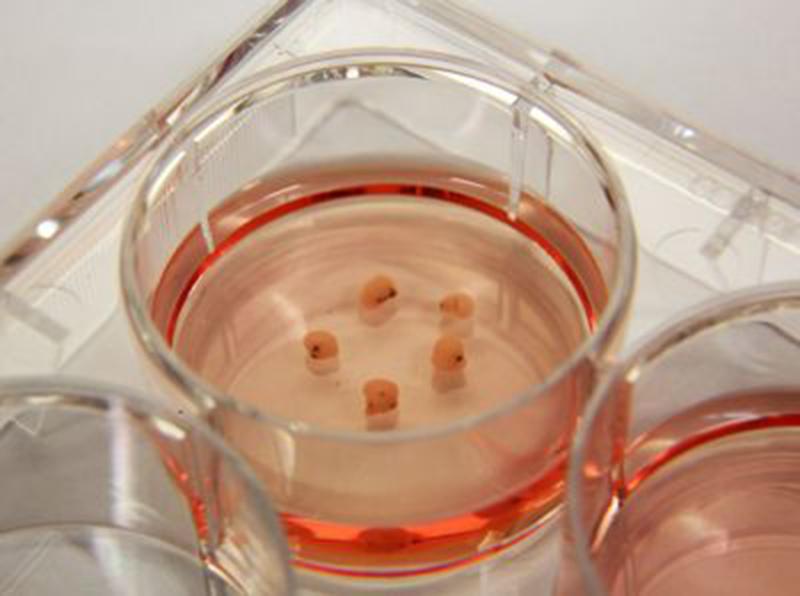Using stem cells, esearchers in Singapore grew mini midbrains in their lab; the group created 2 to 3 mm long brain organoids (pieces of tissue) which they will use to conduct further studies related to Parkinson’s Disease. The 3D tissues will help provide a platform for scientists as they continue to look for treatments for Parkinson’s and other age-related brain diseases.
The mini midbrains have, “functionally active dopaminergic neurons which produce dopamine that plays an important role in motor control, motivation and executive function”, reports the article. According to the study, researchers also detected, for the first time in an organoid model, the black pigment neuromelanin. This pigment, structurally related to melanin, is found in higher concentrations among humans than in other primates. And during Parkinson’s disease, neuromelanin-containing neurons in the substantia nigra undergo neurodegeneration. That degeneration and decrease in neuromelanin leads to symptoms like tremors.
From the article:
“It is remarkable that our midbrain organoids mimic human midbrain development,” assistant professor Shawn Je, from Duke-NUS Medical School’s Neuroscience & Behavioral Disorders Program, said in a prepared statement. “The cells divide, cluster together in layers, and become electrically and chemically active in three-dimensional environment like our brain. Now we can really test how these mini brains react to existing or newly developed drugs before treating patients, which will be a game changer for drug development.”
The human brain is one of the most complex organs (which is pretty cool and says a lot to me about us being “purposely created” as opposed to evolved from mud) and a lack of accessibility to it is one of the biggest challenges we face studying Parkinson’s. The scientists hope that their new mini brains can replace animal models and advance the understanding of Parkinson’s and other brain-related diseases.
And still other researchers, studying other disorders, are growing minibrains as well:
Source: Bioscience Technology












